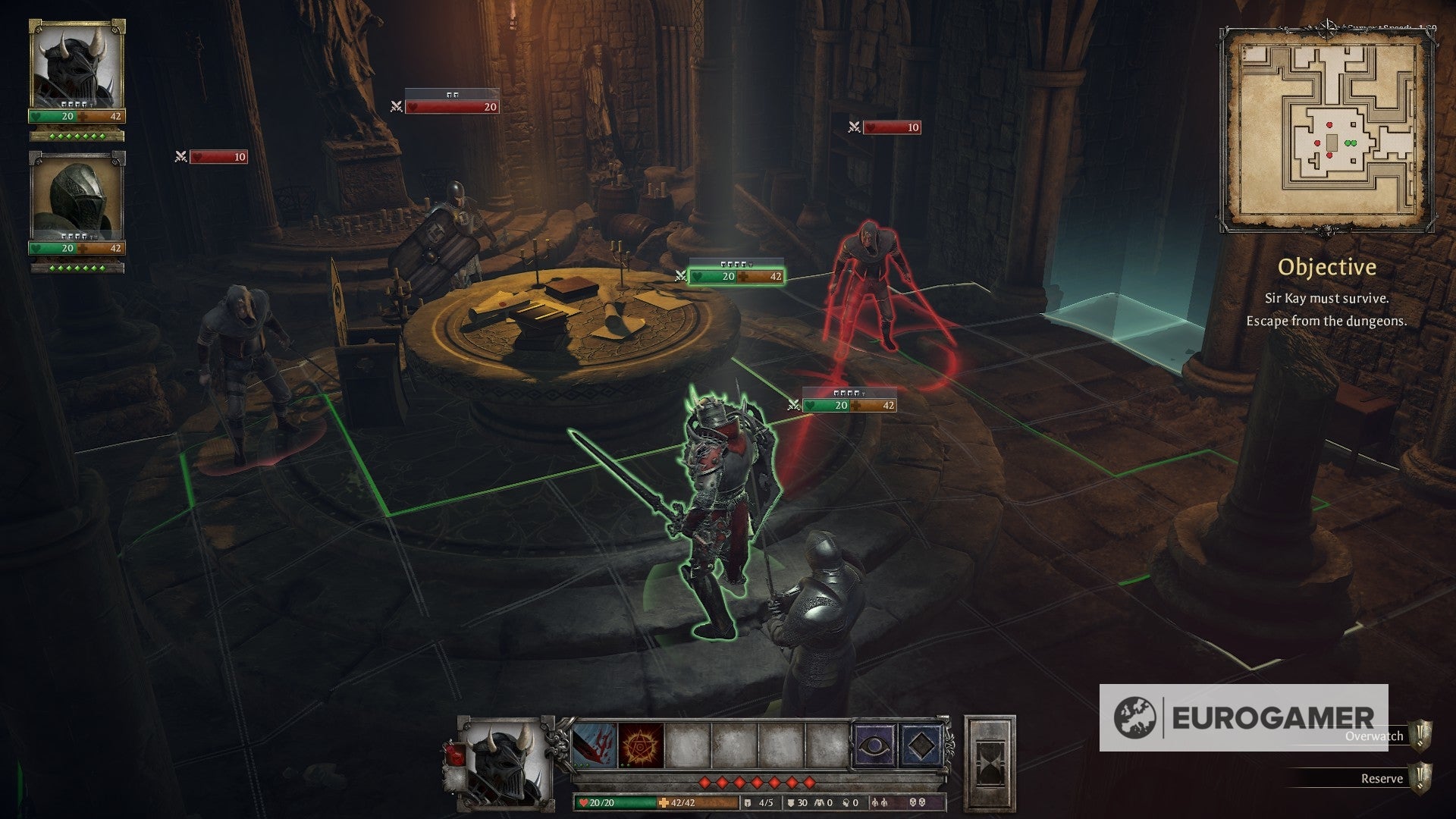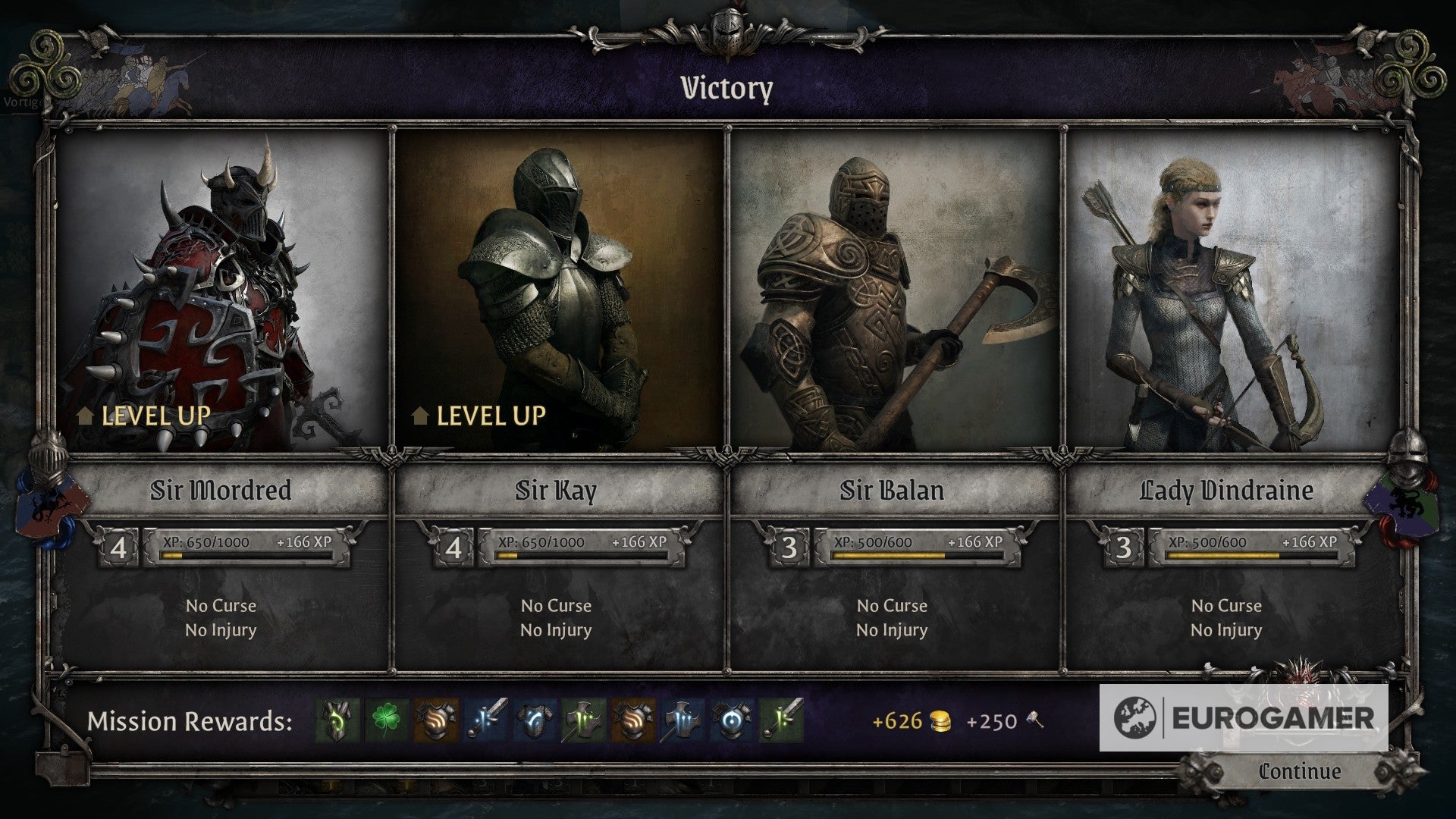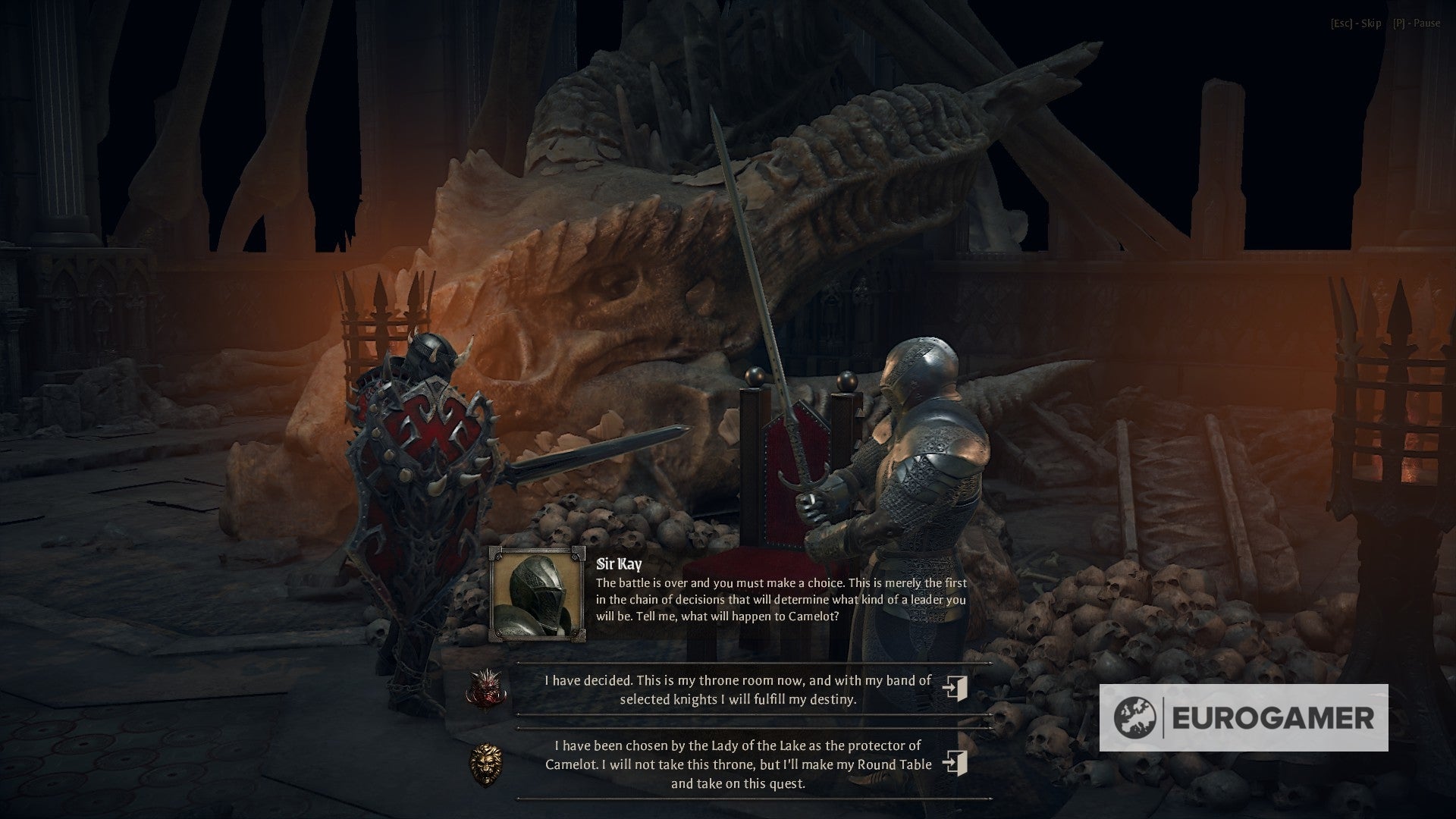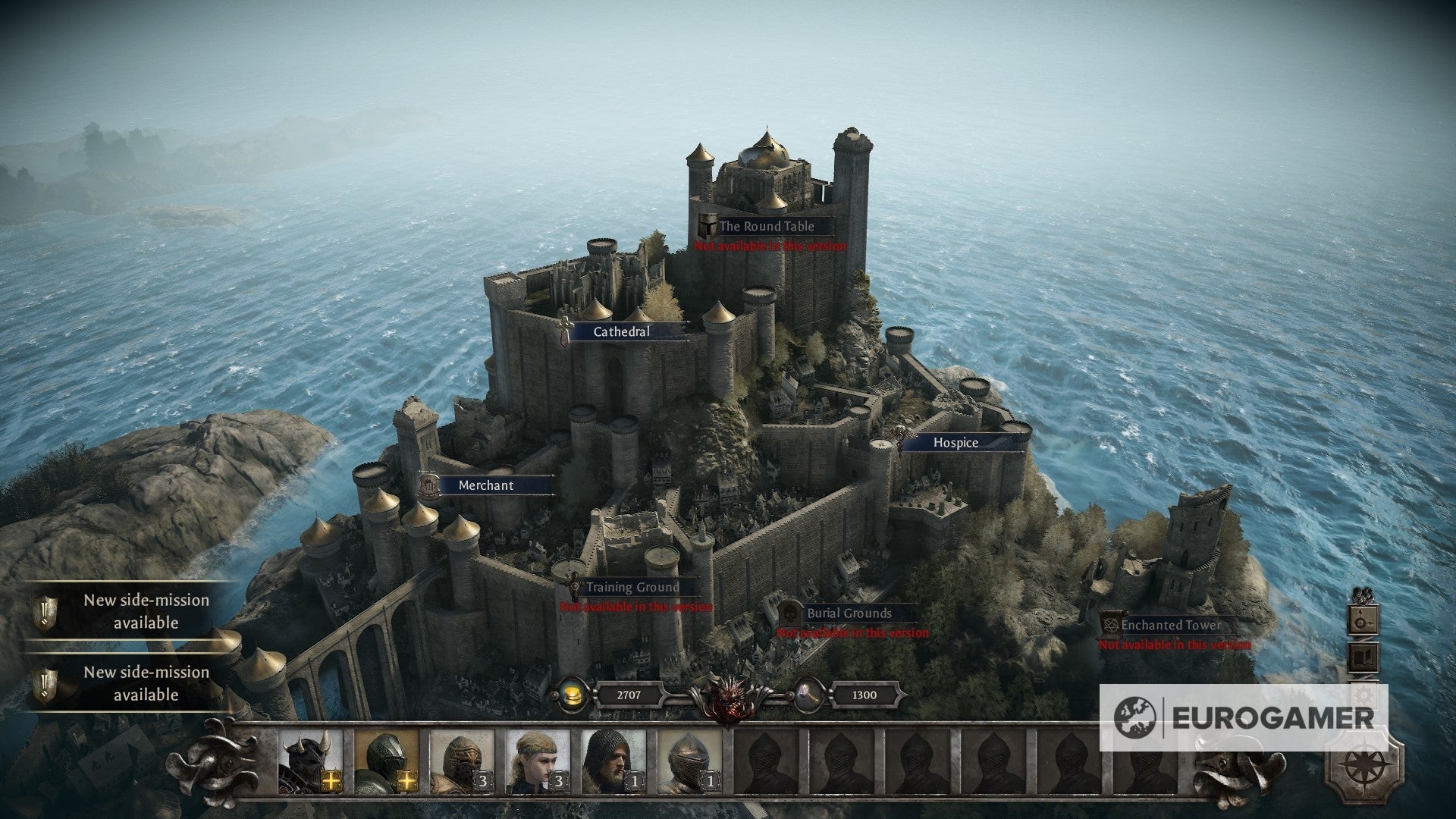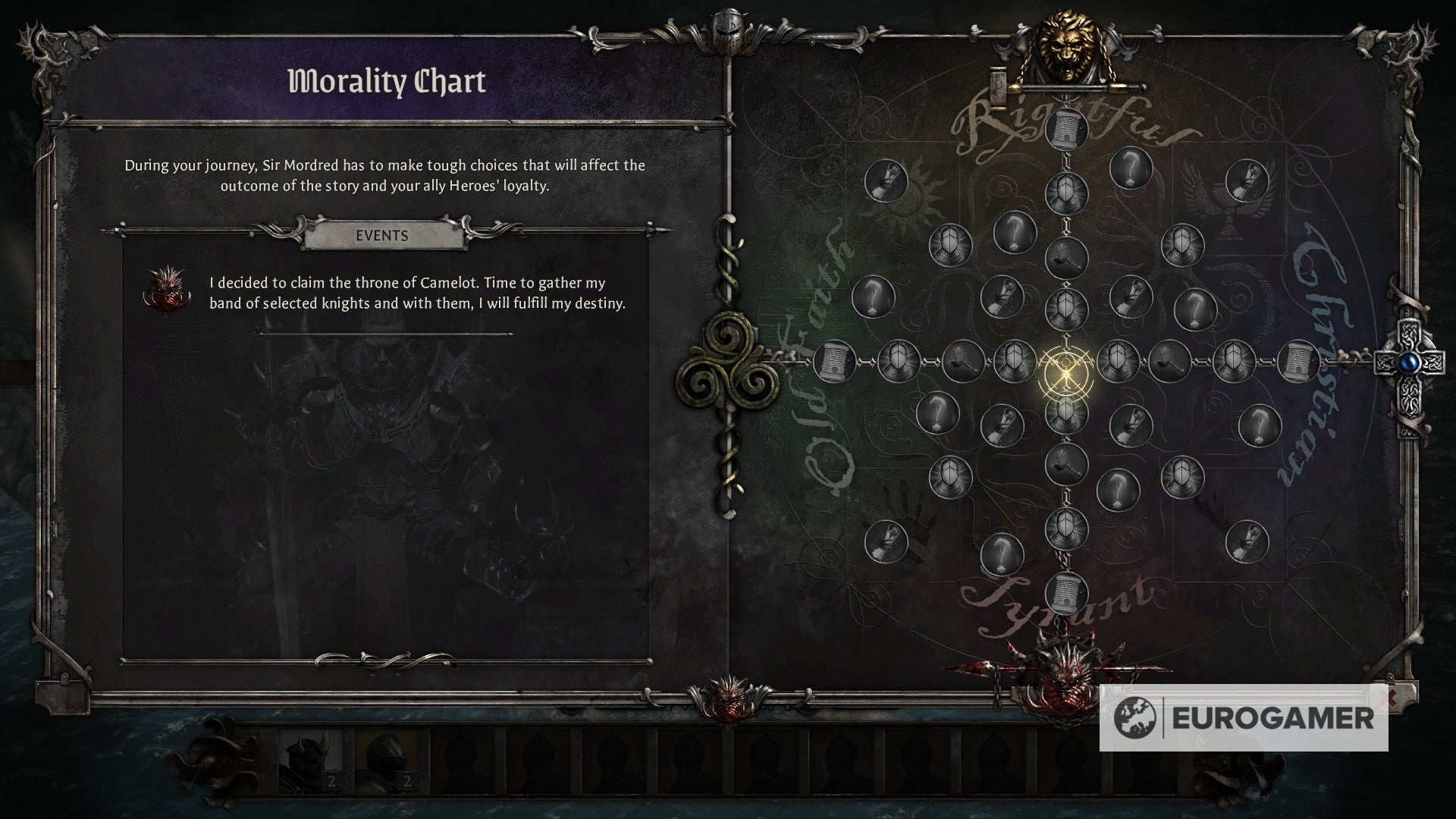It lacks energy, that kind of snappiness and charisma the best turn-based games have. Games like XCOM, games like Divinity: Original Sin 2, which, given King Arthur has RPG exploration and dialogue, seems an apt comparison. And it suffers all over because of it. When you’re in the RPG layer, wandering around environments, it’s slow. And it feels empty, devoid of life in the surroundings, devoid of music or companion banter, devoid, really, of anything much to do. You can loot a body, loot a chest, maybe do a very simple sidequest for a very wooden NPC, but that’s it. All there really is to do is fight. Thankfully, fighting is OK. I particularly like the heft of the animated sword swings and axe chops, and sorting out positioning and attack-type occupies the mind. But the XCOM comparison developer NeoCore mentions is curious, because what King Arthur doesn’t have in any great amount, and which XCOM has in abundance, is ranged combat, hence the whole cover system. In King Arthur, there are a few archers, and I’ve seen a few spells, but that’s it. What does it need a cover system for? I haven’t seen it in use at all. And, again, combat is lethargic. It’s not boring, it’s perfectly playable, but there’s very little to raise your heartbeat or surprise you. It’s only really when you start uncovering some of the undead enemies, a few hours in, things pick up. The question is, will you even want to make it that far? Even in the campaign map layer there’s sluggishness, as the whole thing struggles to run responsively on my not-terrible PC. And it’s a pity, because there are interesting things to do here. Here is where you take control of a destroyed Camelot, and rebuild it. It’s a bit like Darkest Dungeon, in that you fit out a town with upgrades according to your needs. There’s a hospice where you can remove companion injuries between missions, for example, presumably having to juggle your hero roster while they’re laid up. And I don’t know whether companions suffer mental maladies, but there is the prospect they can permanently die while out in the field. Their loyalty to you is another intriguing feature, though I don’t know what happens if it runs foul. And it’s tied to an overarching kind of morality system, literally a morality chart, which places you according to your behaviour on a kind of graph. It’s a cross-axis, with good and bad opposite each other, and religious and pagan opposite each other. You affect your placing by making decisions while on mission. Do you want to make a place Christian or return it to its Old Gods way, for example? What I really like about it is that wherever you go on the chart, you’re rewarded, unlocking various benefits in keeping with your tone. Go evil, like I did, and you unlock the Black Knight companion early on. I love the sound of this feature, just as I love the promise of so many other things in the game. The problem is, they’re either not implemented yet or don’t kick in until much later in the game. And I’m not sure I want to get there, or indeed, can. It’s early access, and the very beginning of the process. That’s frustrating, if you’re really excited about the game, as it’s not finished, but it’s also reassuring because there’s a lot of work left to do. And, really, it’s now in the best hands: lots of hands, which will help hone and shape it as time goes on. There’s time. There’s time for it to fatten with features, and there’s time for it to get the jolt of energy it needs and the whack of charisma it could do with. One with promise, then, but one to wait on for now.
